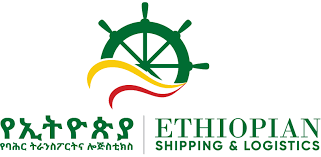
The Ethiopian Shipping and Logistics (ESL) has announced plans to boost its sea freight capacity to 5.8 million tons and generate Birr 144 billion in revenue during the 2025/26 fiscal year. The organization also revealed initiatives to expand domestic water transport, including the procurement of boats for use on inland waterways such as the Grand Ethiopian Renaissance Dam.
In a statement, ESL CEO Dr. Beriso Amelo stated that the organization aims to increase inbound cargo from the current 3.7 million tons to 4.2 million tons, and outbound cargo from 40,999 tons to 53,420 tons. He emphasized that a key goal for the year is achieving Birr 144 billion in total revenue.
To enhance foreign exchange earnings, Dr. Beriso noted that 290 tons of cargo from other countries are expected to be transported by sea, contributing to an overall increase in sea cargo capacity from 5.2 million to 5.8 million tons.
Reflecting on the 2024/25 fiscal year, Dr. Beriso reported that ESL had generated Birr 108.78 billion in revenue, exceeding its target of Birr 101.86 billion by 7 percent. He attributed this performance to improved macroeconomic conditions in the country.
In line with efforts to develop domestic maritime infrastructure, Dr. Beriso confirmed that the organization has begun work to acquire boats aimed at promoting tourism and supporting transportation on inland waterways, including around the Grand Ethiopian Renaissance Dam. He highlighted the recent acquisition of the Tananesh boat and stated that preparations are underway to assemble boats locally.
During the previous fiscal year, ESL transported over 2.2 million tons of inbound cargo and 356,337 tons of outbound cargo, primarily fertilizers, via its unimodal system. A total of 437,241 TEU containers were handled at dry ports and terminals.
Dr. Beriso acknowledged challenges posed by the disruption of international shipping routes due to security issues in the Red Sea region. Despite this, ESL managed to maintain the flow of goods by optimizing the schedules of its own fleet and coordinating closely with foreign ships arriving at regional ports.
He also highlighted notable achievements, including expansion of cargo transport services to international markets, digitalization initiatives, development of the Babogaya Maritime and Logistics training services, organizational financial reforms, and efforts to modernize and expand domestic water transport.
Source: Addis Zemen



